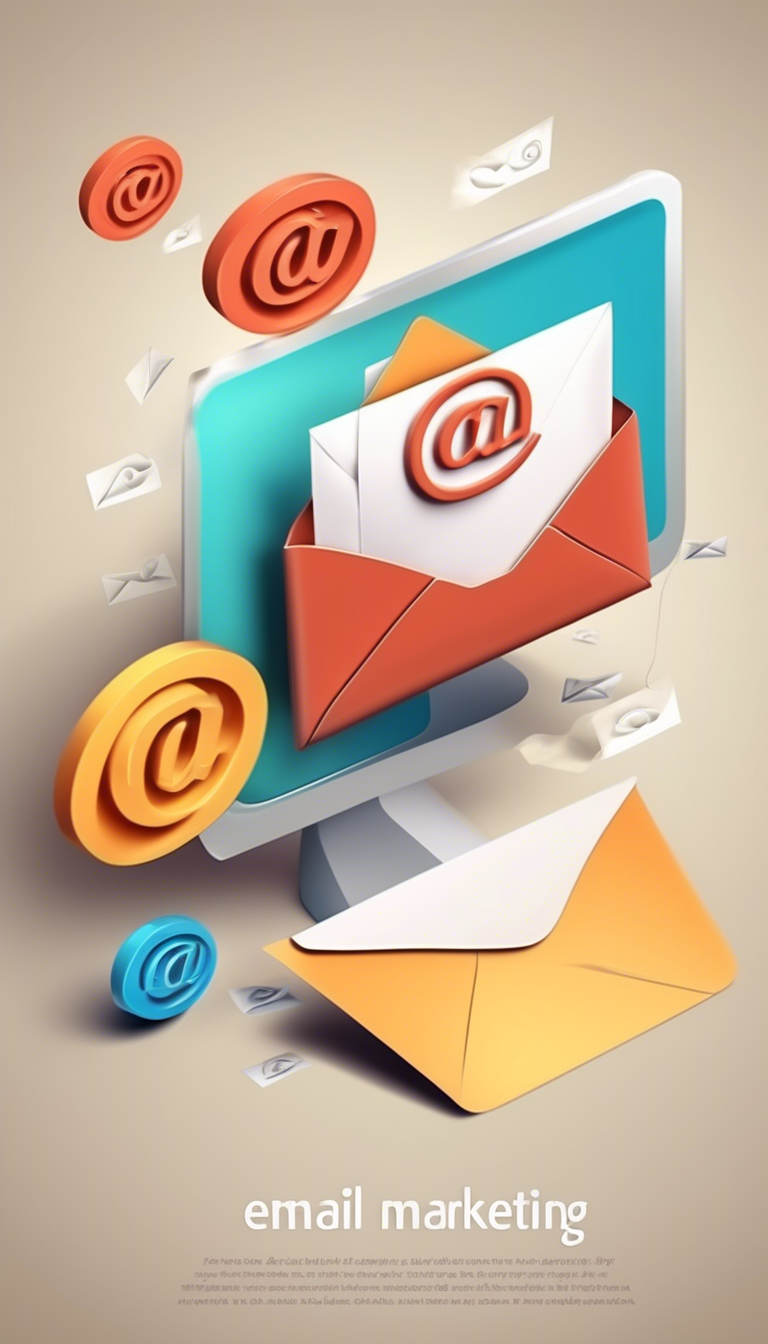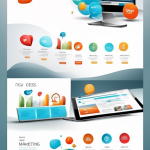Understanding the Meaning and Importance of Email Marketing
Email marketing has become an essential tool for businesses looking to connect with their audience, build relationships, and drive sales. Understanding the meaning of email marketing is crucial for anyone involved in digital marketing. Simply put, email marketing refers to the process of sending commercial messages to a group of people via email. This can include newsletters, promotional offers, product announcements, and customer engagement messages. But why is it so important?
First, let’s explore the key aspects that define email marketing:
- Direct Communication: Email allows businesses to communicate directly with their customers. Unlike social media, where algorithms can limit visibility, emails land straight in the inbox.
- Targeted Messaging: You can segment your audience based on various criteria such as demographics, past purchases, or engagement levels. This ensures that your message is relevant to each recipient.
- Cost-Effective: Compared to traditional marketing channels, email marketing is very affordable. You can reach a large audience without spending a fortune.
- Measurable Results: With tools available today, tracking the success of your campaigns is simple. Metrics like open rates, click-through rates, and conversions help you understand what works and what doesn’t.
- Building Relationships: Consistent communication through email helps nurture leads and maintain customer relationships, fostering brand loyalty over time.
To truly understand email marketing, you must appreciate its significance. Every day, billions of emails are sent worldwide, and it’s a space where consumers feel comfortable engaging with brands. Here’s why this means so much:
- High Return on Investment (ROI): According to studies, for every dollar spent on email marketing, businesses can expect an average ROI of $42. This staggering figure illustrates how effective email marketing can be.
- Increase in Sales: Many consumers prefer receiving offers via email rather than through ads. This preference often leads to increased sales and customer engagement.
- Automation Capabilities: You can automate your email campaigns using marketing software. This means that you can set up emails to send based on triggers, like signing up for a newsletter or abandoning a cart.
- Brand Awareness: Regular contact through email keeps your brand at the forefront of subscribers’ minds. This continual exposure enhances brand recognition and awareness.
However, the effectiveness of email marketing lies in how well you implement your strategies. Here are some advanced strategies to consider:
- Personalization: Use the recipient’s name or tailor content based on their preferences. Personal touches make users feel valued and more likely to engage.
- A/B Testing: Experiment with different subject lines, content formats, and send times. A/B testing helps determine what resonates best with your audience.
- Clear Call-to-Action (CTA): Each email should guide the reader on what to do next, whether it’s to download a free resource, shop a sale, or read a blog post.
- Responsive Design: Ensure your emails look good on both desktop and mobile devices. A significant amount of emails are opened on mobile, so mobile optimization is critical.
- Regular Cleanup: Regularly clean your email list to remove inactive subscribers. This practice improves deliverability and engagement metrics.
Understanding the meaning and importance of email marketing begins with recognizing its potential. It’s not just about sending emails but about crafting messages that resonate with your audience. By making your emails informative, engaging, and personalized, you can significantly enhance your connection with subscribers.
In a world where digital interactions continue to grow, mastering email marketing can set your business apart. As you harness this powerful tool, remember that the ultimate goal is to create a valuable experience for your audience, leading to long-term relationships and successful marketing outcomes.
Effective Strategies for Building a Successful Email Marketing Campaign
Email marketing is a powerful tool for businesses looking to engage customers and foster relationships. Implementing effective strategies can greatly impact the success of your campaigns. Here are some approaches you can use to build a successful email marketing campaign.
Understand Your Audience
Getting to know your audience is crucial. You need to identify who your subscribers are and what interests them. Utilize surveys, social media insights, and analytics to gather this information. When you understand your audience’s preferences, you can tailor your content to meet their needs. Here are a few ways to gather insights:
Join our amazing AI and Automation Community
- Conduct surveys to ask subscribers about their interests and preferences.
- Monitor social media conversations related to your brand.
- Analyze previous email campaigns to identify what content received the most engagement.
Craft Compelling Subject Lines
Your subject line is the first thing subscribers see and plays a significant role in whether they open your email. Make it catchy, clear, and relevant. Here are some tips for writing subject lines that grab attention:
- Keep it short—ideally under 50 characters.
- Use action-oriented language that encourages readers to take action.
- Personalize your subject lines with the recipient’s name or specific interests.
Segment Your Email List
Segmentation allows you to categorize your subscribers based on various criteria, such as demographics, purchase behavior, or engagement levels. This enables you to send targeted messages that resonate more with each group. Consider these strategies for segmentation:
- Demographic segmentation—age, gender, location.
- Behavioral segmentation—past purchases, email open rates.
- Interest-based segmentation—specific categories that interest subscribers.
Design Eye-Catching Emails
A visually appealing email can capture your subscriber’s attention quickly. Use an attractive design that aligns with your brand and message. Here are some key design elements:
- Use a clear and simple layout that guides the reader’s eye.
- Choose colors and fonts that reflect your brand identity.
- Incorporate engaging images or graphics that complement your text.
Provide Valuable Content
Your emails should deliver value. Whether sharing tips, industry insights, or exclusive offers, your content should inform or entertain. Remember to focus on your subscribers’ needs and interests. Here are some content ideas:
- How-to guides that help solve common problems.
- Exclusive discounts or promotions for subscribers only.
- News updates related to your industry.
Include Clear Calls to Action (CTAs)
Every email you send should include a clear call to action. This tells subscribers what you want them to do next. Whether it’s visiting your website, downloading a resource, or making a purchase, make your CTA prominent and compelling. Here are some tips for effective CTAs:
- Use contrasting colors to make the CTA button stand out.
- Write persuasive text that communicates urgency or value.
- Place CTAs strategically throughout your email for maximum visibility.
Test and Optimize
Don’t forget to test different aspects of your emails. A/B testing can help you know what works best for your audience, whether it’s subject lines, content formats, or sending times. Regularly review your campaign performance to identify areas for improvement. Key metrics to watch include:
Join our amazing AI and Automation Community
- Email open rates—indicating how well your subject lines perform.
- Click-through rates—showing how engaging your content is.
- Conversion rates—measuring the effectiveness of your CTAs.
By employing these strategies, you will be better equipped to create effective email marketing campaigns that not only reach your audience but also resonate with them, leading to higher engagement and conversion rates. Remember, the key to successful email marketing lies in understanding your audience, providing value, and continuously optimizing your efforts.
Conclusion
Email marketing holds significant meaning in today’s digital landscape. It is not just about sending messages; it’s about building relationships with your audience. When you understand its importance, you can unlock the potential of connecting with your customers in ways that other marketing channels can’t achieve. This personal touch often leads to increased engagement and loyalty, helping businesses thrive in a competitive marketplace.
To build a successful email marketing campaign, you must employ effective strategies that resonate with your target audience. Start with crafting compelling subject lines that grab attention and entice readers to open your emails. Segmenting your audience is another crucial step; it allows you to send tailored messages that meet the unique needs and interests of different groups. Additionally, optimizing your content with a clear call to action encourages readers to take the desired steps, whether it’s visiting your website or making a purchase.
Remember, the goal is to create valuable content that engages your audience over time. Pay attention to the performance of your campaigns through analytics, which can provide insights into what works and what doesn’t. By consistently refining your approach based on real data, you can enhance your email marketing efforts continuously.
By prioritizing your audience’s needs and maintaining a strong focus on relationship-building, you can transform email marketing into a powerful tool for growth and engagement. Embrace the journey of learning and adapting, and watch your campaigns flourish with newfound success.


